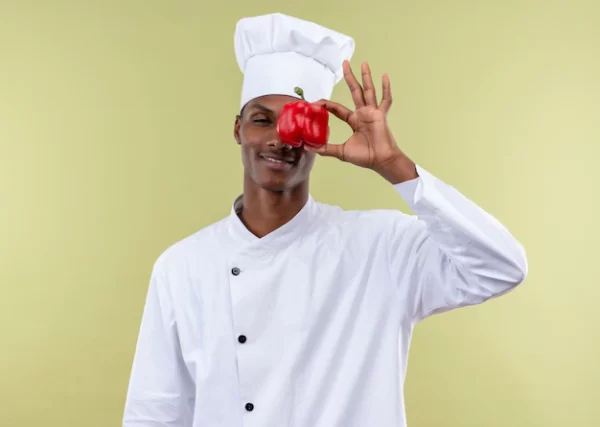To become a chef in Canada, you’ll need proper training and certification. The two main options are:
- Culinary school. Attending a culinary institute or college is a great way to get comprehensive training. Programs usually take 1-4 years to complete and cover cooking techniques, food safety, menu planning, and more. Many schools offer internships or apprenticeships as part of the curriculum.
Once you graduate, you’ll earn a diploma or degree and the title of “chef.” While not always required, formal education shows employers you have the necessary knowledge and skills. Some of the top culinary schools in Canada include George Brown College, Niagara College, and Vancouver Community College.
- Apprenticeship. If you prefer learning on the job, apprenticeships are an excellent path. You work under a skilled chef for 2-5 years to gain experience. While requirements vary by province, you typically need a high school diploma and must be over 18. Apprentices earn a wage and get paid time off to complete technical training.
At the end of your apprenticeship, you can earn a “Red Seal” certification by passing an exam. This allows you to work as a chef anywhere in Canada. Apprenticeships may take longer, but you get paid to learn and have a job waiting for you after completion.
Whether you choose school or apprenticeship, becoming a chef in Canada requires dedication. But for those with a passion for food and cooking, the rewards of this career can be well worth the effort. With the proper training and credentials, you’ll be creating culinary masterpieces in no time!
Gain Experience by Working in a Commercial Kitchen
To become a chef in Canada, one of the best ways to gain valuable experience is by working in a commercial kitchen. This is where you’ll learn firsthand what it’s really like to cook professionally and hone your skills.
Look for entry-level jobs at restaurants like line cook, prep cook, or kitchen assistant. These roles will expose you to a fast-paced, high-pressure environment and teach you skills like knife techniques, food safety standards, and how to follow recipes efficiently. Work your way up to more advanced positions like sous chef as you gain experience.
While the hours can be long, working in a restaurant kitchen allows you to learn from more experienced chefs and discover your culinary passions. Pay attention to the flavors, presentations, and cooking techniques that inspire you. Study the menu to understand how dishes are made. Ask questions and don’t be afraid to take on more responsibility to expand your knowledge.
Once you’ve spent a few years in a commercial kitchen, you’ll have a much better sense of the kind of chef you want to become and the cuisine you want to focus on. You may decide to enroll in a culinary school or apprenticeship program to strengthen your foundational cooking skills and gain a more formal education. Or, you might continue advancing in your current kitchen or look for a chef position at another restaurant to broaden your experience.
The key is simply to dive in and start cooking. While the hours are long and the work is hard, there’s no better place to learn the art of cooking than in a real restaurant kitchen. Gain experience, follow your passions, and never stop improving your craft. With enough dedication, you’ll be well on your way to becoming a chef.
Consider Becoming a Master Chef.
Once you’ve gained enough experience as a chef in Canada, you may want to consider becoming a certified master chef. This is the highest designation for chefs and shows your superior skill and expertise.
Education and Training
To become a master chef, you’ll need extensive education and training. This typically includes:
- Completing a 4-year bachelor’s degree in culinary arts, food service management, or a related field. Some master chefs also have degrees in business, hospitality management, or education.
- Gaining at least 10 years of work experience as an executive chef or in a similar role. This provides the necessary knowledge and skills to lead a culinary team.
- Completing a master chef certification program. These programs usually involve coursework in advanced cooking techniques, menu development, food styling, and managing a culinary team. You’ll also have to pass a rigorous exam to earn the master chef designation.
Responsibilities
As a master chef, you’ll have additional responsibilities beyond a typical chef role. This includes:
- Overseeing and managing the culinary team, including executive chefs, sous chefs, and line cooks. You’ll provide guidance and mentorship to help them improve their skills.
- Creating innovative menus and recipes. Master chefs are expected to keep up with trends in the culinary world and push the envelope with new flavor profiles, cooking techniques, and dish presentations.
- Training and teaching apprentice chefs and culinary students. Many master chefs work as instructors at culinary schools and institutes to pass on their knowledge to the next generation of chefs.
- Acting as a leader in the local culinary community. Master chefs often participate in culinary events, competitions, fundraisers, and conferences to promote their restaurant or place of work. They are also well-connected within the chef community.
Becoming a master chef is not an easy goal, but for those passionate about the culinary arts, it can be an extremely rewarding achievement. If you have the necessary dedication, skill, and experience, pursuing a master chef certification may be the next step in advancing your culinary career.


